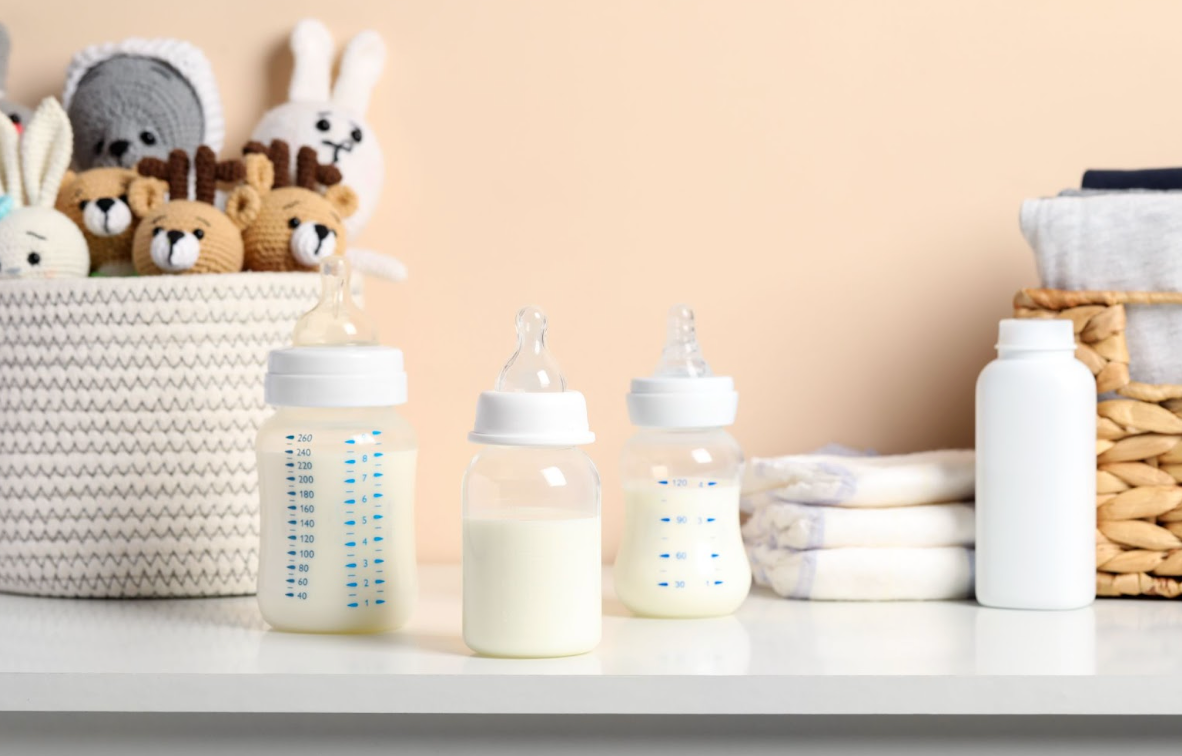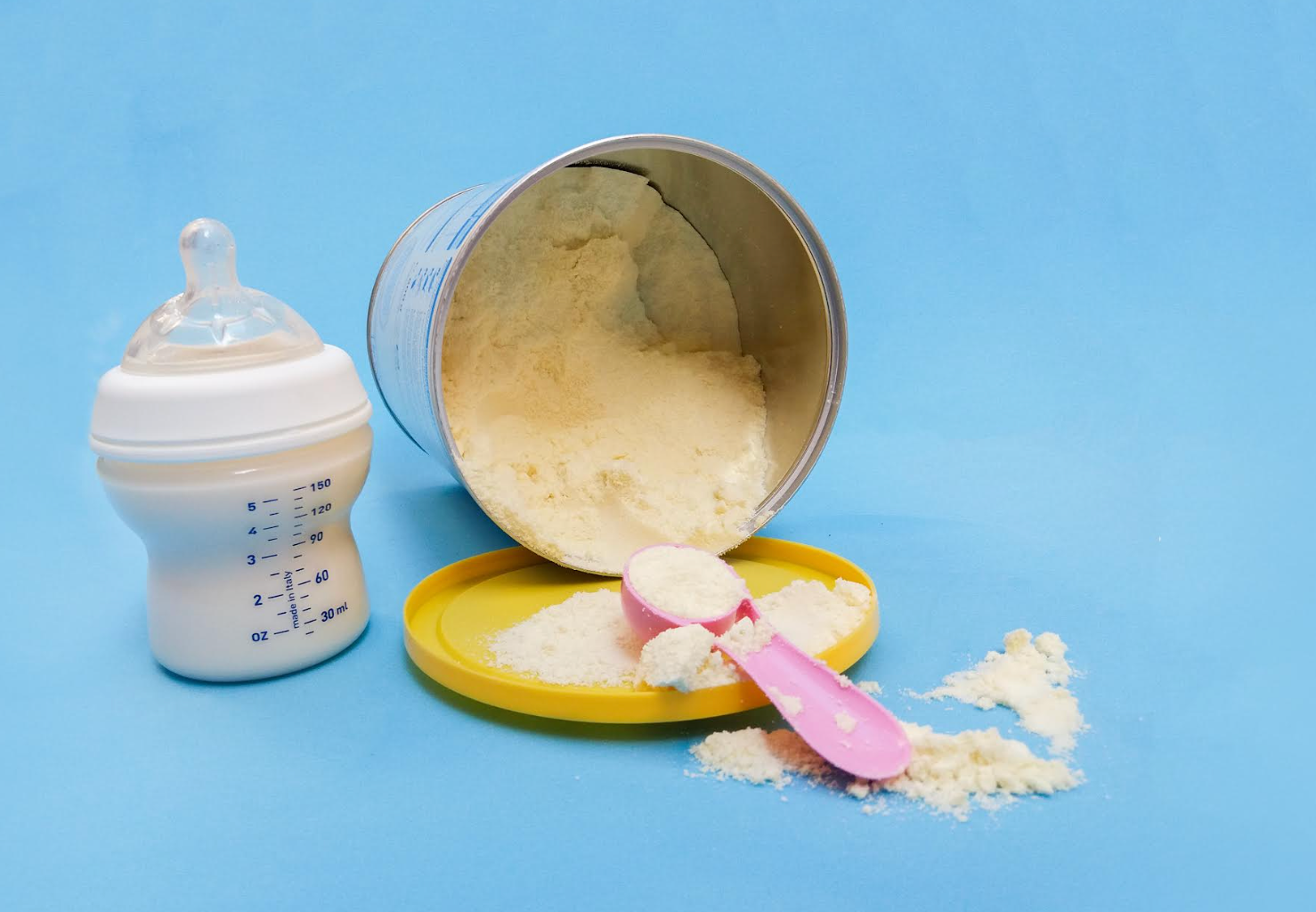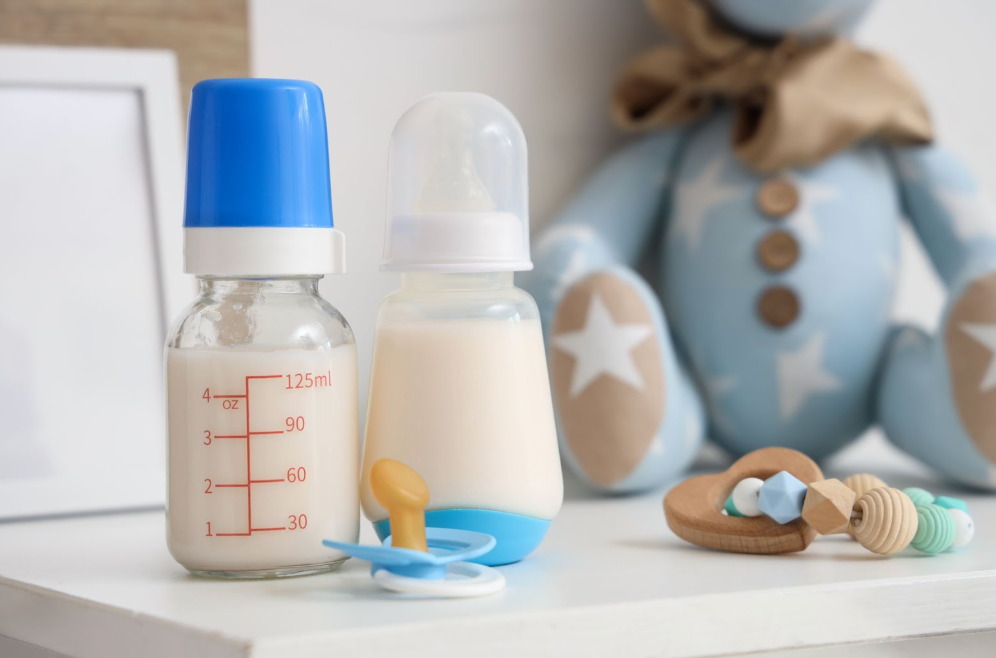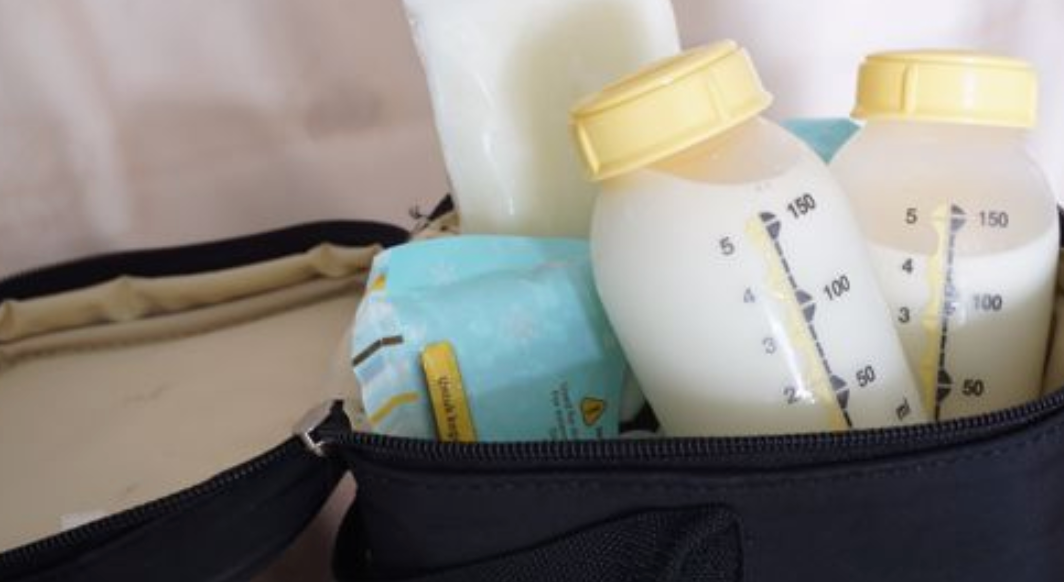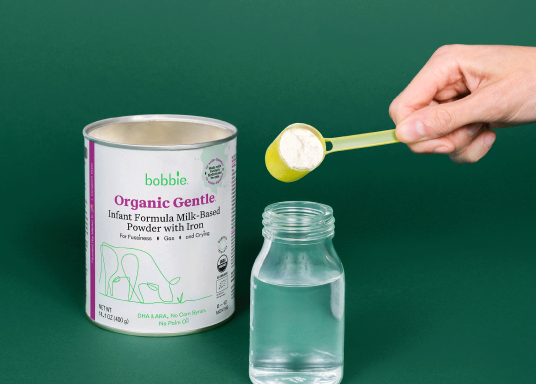Published June 13, 2025

Time To Transition? How To Switch From Gentle To Routine Formula
If switching your baby’s formula feels like a scary step, you’re not the only one feeling that way. Whether you need a new formula due to a recall, your pediatrician is recommending a switch, or you’re exploring options with different ingredients, a lower price, or a more organic focus, making a change is more common (and more manageable) than you might think.
With so many formulas out there — routine, hypoallergenic, organic, soy-based and even European-style options — you’ve got room to find one that truly fits your baby and your family’s values. Maybe you're looking to move away from partially-hydrolyzed formula. Perhaps you’re checking labels to avoid alternative sugars or find specific protein types. Whatever your reason, the good news is that most babies adjust beautifully with the right approach and support.
In this guide, we’ll cover everything you need to know about changing formula, including when it might be time, how to do it smoothly and what signs to look for as your baby transitions. Plus, we’ll show you how Bobbie is here to make that transition feel less overwhelming — and a lot more empowering!
Why Switch Baby Formula?
Deciding to switch your baby’s formula is a common part of the feeding journey. Most of the time, the decision is based on your baby’s age, development, or changing nutritional needs. But other factors like recalls, ingredient preferences, cost or guidance from your pediatrician also play a role.
Whatever your reason, understanding why to switch can help you feel more confident and supported as you make the best choice for your baby — and for you. Here are some of the most common reasons parents decide to change baby formula:
1. Your Current Formula is Recalled
Parents should immediately check to see if the lot numbers on their current formula match a recalled lot. Check the FDA recall release for those lot numbers and instructions about what to do if your product is part of the recall. While recalls are rare, they can be serious. Switching to a new formula may provide peace of mind that you're making the right choice to keep your baby healthy.
2. Your Baby Is Outgrowing Their Current Formula
Many babies begin their feeding journey with a gentle or partially hydrolyzed formula. These formulas are made with lots of whey protein that is broken down into smaller pieces, making it easier to digest — especially for younger babies or those with mild tummy sensitivities. They can help with fussiness or gas in those early months.
But as your baby grows (usually between 6 and 12 months), their digestive system also matures. At this stage, most little ones are ready to handle intact milk proteins — the kind found in routine formulas. Switching to a standard formula can support their evolving nutritional needs while continuing to fuel healthy growth and development.
Routine formulas like Bobbie Organic Whole Milk infant formula are crafted to provide complete nutrition in a milk-based formula that’s a stepping stone to what toddlers and older children consume in whole cow’s milk, supporting healthy growth and development.
3. Your Baby Is Starting To Eat Solids
Starting solids is a big (and exciting!) milestone in your baby’s development. When your little one begins enjoying foods like yogurt, cheese, or other dairy-containing solids, it’s often a sign that their digestive system is growing right along with them.
If they’re handling these new textures and ingredients with no trouble, chances are they’ll do just fine on a routine milk-based formula, too. Transitioning away from gentle or partially-hydrolyzed options at this stage can make feeding simpler and can help your baby get used to a wider variety of tastes and nutrients.
4. You Want a More Cost-Effective Option
Let’s be honest — formula feeding can be one of the bigger line items in your baby’s first year. Specialty options like gentle, hypoallergenic, or reflux formulas tend to cost more because of their carefully tailored ingredients and extra processing.
But if your baby is thriving and no longer needs a specialty formula, switching to a routine option can make a big difference financially. For example, moving from Bobbie Organic Gentle to Bobbie Whole Milk formula can save families over $200 in just the second half of their baby’s first year (when subscribing).
Those savings add up quickly — and the best part? You’re still giving your baby high-quality organic nutrition that supports their growth and development.
5. Your Pediatrician Recommends It
Sometimes the best guidance comes from the expert who knows your baby best — your pediatrician. They’re keeping a close eye on things like growth, digestion and overall well-being and may recommend a formula change to better support your baby’s next stage of development.
If your little one is thriving and starting to show signs of readiness, your doctor might suggest transitioning to a routine milk-based formula as a helpful next step. It’s a gradual way to support your baby’s changing needs while making the eventual switch to whole milk a little smoother.
Best Practices for a Smooth Formula Transition
Switching your baby’s formula is an important change that requires care and patience. Since your baby’s digestive system may need time to adapt, keep in mind that changes in stool texture, color, and frequency as well as short-term increases in gas and fussiness can be normal.
How You Transition Matters
In the case of a recall, immediately stop using any affected lots of recalled product and check FDA’s recall release for next steps. A ‘cold turkey’ change also makes it clearer much earlier if your baby is tolerating the new formula. In other cases, some pediatricians recommend slowly introducing a new formula to help reduce common temporary side effects like fussiness, gas, or changes in stool texture and frequency. . Talk to your pediatrician about which option is right for you!
During the transition, keep a close eye on your baby’s reactions. Temporary fussiness, changes in stool, increased spit up, or refusal to finish bottles can be normal for a couple of days. But if your baby seems very uncomfortable or shows signs of intolerance like projectile vomiting, new wide-spread rash, blood or excessive mucus in the stool, severe diarrhea or persistent refusal to eat, please check in with your pediatrician.
Every baby is unique, so take the process at your baby’s pace and reach out to your healthcare provider if you have any questions or concerns.
Additional Tips for a Successful Formula Switch
-Keep Feeding Times Consistent: Maintain your baby’s usual feeding schedule to provide comfort and routine.
-Provide the New Formula First Thing: Trying the new formula in the morning is wise, as it can give you time to watch for reactions compared to a pre-bedtime bottle.
-Offer Extra Comfort: Some babies benefit from more cuddling or soothing during transitions to ease any temporary tummy discomfort.
-Watch for Allergic Reactions: While rare, monitor for rash, swelling, breathing difficulties or bloody stools — these require immediate medical attention.
Recognizing Normal vs. Concerning Adjustment Periods When Switching Formula
Switching your baby’s formula can come with an adjustment period as their little digestive system gets used to something new. Most of these are totally normal and usually settle down within a few days to a week. Knowing what to expect — and when to reach out — can make the whole process a lot less stressful.
What’s Normal When Switching Baby Formula
It’s totally normal for your baby to show a few mild, temporary changes when trying a new formula, such as:
-
A little extra gas, burping or some spit-up
-
Changes in stool color, texture or frequency
-
Slight fussiness or hesitation with the new taste
-
Brief irritability that settles quickly with common soothing methods
These reactions are just your baby’s way of adjusting to new ingredients or proteins — not a sign of a bigger issue like an allergy or intolerance.
Remember, every baby’s different, so a little adjustment time is part of the process!
When To Consult a Pediatrician
Switching formulas isn’t something you have to do on your own. Your pediatrician can help guide the process and make sure your baby is ready, especially if your child:
-
Has been diagnosed with cow’s milk protein allergy, reflux or digestive complications
-
Is starting dairy solids and you’re not sure how they’ll tolerate them
-
Has had negative reactions to formula changes in the past
-
Has a family history of allergies
In many cases, doctors recommend trying a routine formula like Bobbie Organic Original or Organic Whole Milk formula between 6 and 12 months as a safe, complete nutrition option before introducing cow’s milk after their first birthday.
Monitoring Your Baby’s Comfort and Feeding Patterns During the Transition
Not sure if your formula switch is working? The best indicators are your baby’s behavior, digestion, and growth.
Here’s what to look for:
-
Six to eight wet diapers a day
-
Regular bowel movements without signs of distress
-
Steady weight gain along your pediatrician’s growth curve
-
Happy, alert behavior during and after feeding
-
Feeding volume that matches their age and stage
Tracking these patterns can help you feel confident that your baby is adjusting well.
Bobbie Helps You Make Switching Formulas a Breeze
We know formula changes can feel overwhelming, but they don’t have to be! At Bobbie, we’ve built our products around the real needs of real families, with science-backed, clean-label formulas designed to support your baby at every stage.
Why Choose Bobbie?
-
Intact milk proteins that gently prepare the digestive system for whole milk
-
USDA Organic and Clean Label Project Certified recipe
-
European-style formulation with U.S. FDA compliance and quality
-
Cost-effective compared to specialty or hydrolyzed formulas
-
Created by moms, scientists and medical professionals
Whether you're moving on from a partially-hydrolyzed formula or switching after a recall, Bobbie offers options to support your formula-fed baby from 0-12 months.
Shop Bobbie today to find the right formula for your family’s next chapter!
Bobbie infant formulas are clean, EU-style infant formulas that meets all FDA requirements. They are complete nutrition, milk-based powder, modeled after breast milk and is easy on tummies. They are all non-GMO and do not have corn syrup, palm oil, or maltodextrin. Shop Bobbie today!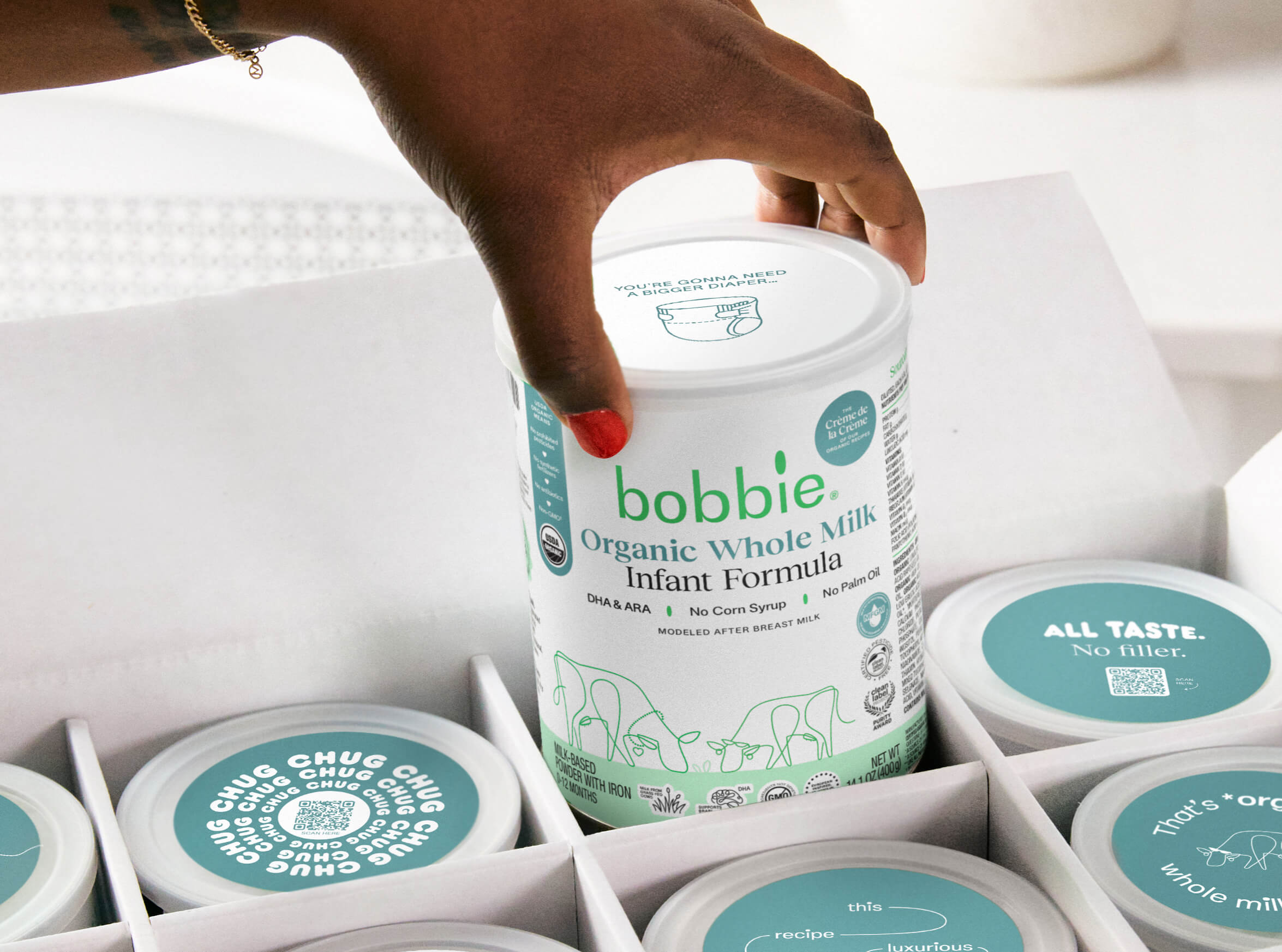
Shop Bobbie Baby Formula

The content on this site is for informational purposes only and not intended to be a substitute for professional medical advice, diagnosis or treatment. Discuss any health or feeding concerns with your infant’s pediatrician. Never disregard professional medical advice or delay it based on the content on this page.












